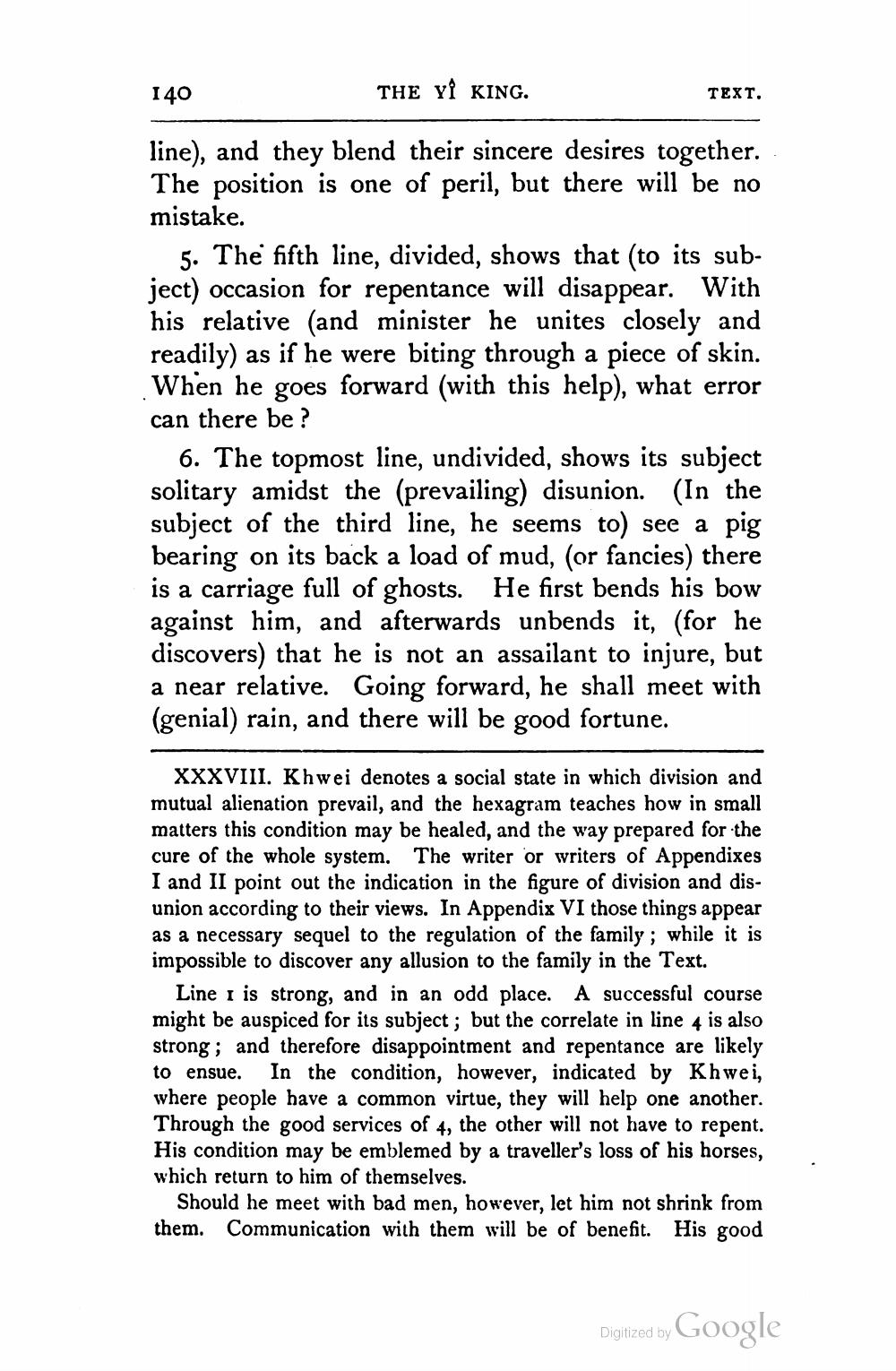________________
140
THE YÎ KING.
TEXT.
line), and they blend their sincere desires together.
The position is one of peril, but there will be no mistake.
5. The fifth line, divided, shows that (to its subject) occasion for repentance will disappear. With his relative (and minister he unites closely and readily) as if he were biting through a piece of skin. When he goes forward (with this help), what error can there be ?
6. The topmost line, undivided, shows its subject solitary amidst the (prevailing) disunion. (In the subject of the third line, he seems to) see a pig bearing on its back a load of mud, (or fancies) there is a carriage full of ghosts. He first bends his bow against him, and afterwards unbends it, (for he discovers) that he is not an assailant to injure, but a near relative. Going forward, he shall meet with (genial) rain, and there will be good fortune.
XXXVIII. Khwei denotes a social state in which division and mutual alienation prevail, and the hexagram teaches how in small matters this condition may be healed, and the way prepared for the cure of the whole system. The writer or writers of Appendixes I and II point out the indication in the figure of division and disunion according to their views. In Appendix VI those things appear as a necessary sequel to the regulation of the family; while it is impossible to discover any allusion to the family in the Text.
Line I is strong, and in an odd place. A successful course might be auspiced for its subject; but the correlate in line 4 is also strong; and therefore disappointment and repentance are likely to ensue. In the condition, however, indicated by Khwei, where people have a common virtue, they will help one another. Through the good services of 4, the other will not have to repent. His condition may be emblemed by a traveller's loss of his horses, which return to him of themselves.
Should he meet with bad men, however, let him not shrink from them. Communication with them will be of benefit. His good
Digitized by Google




